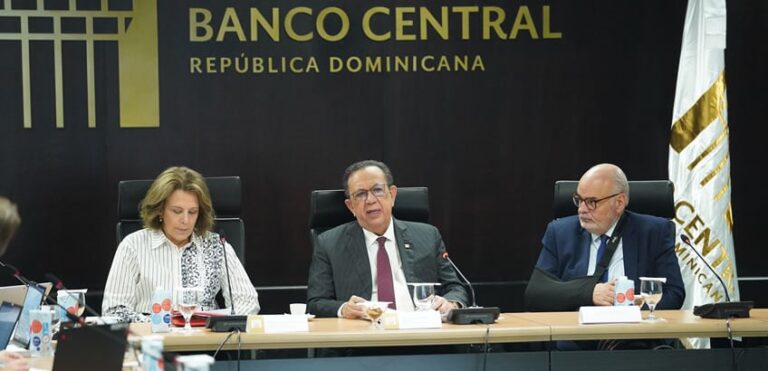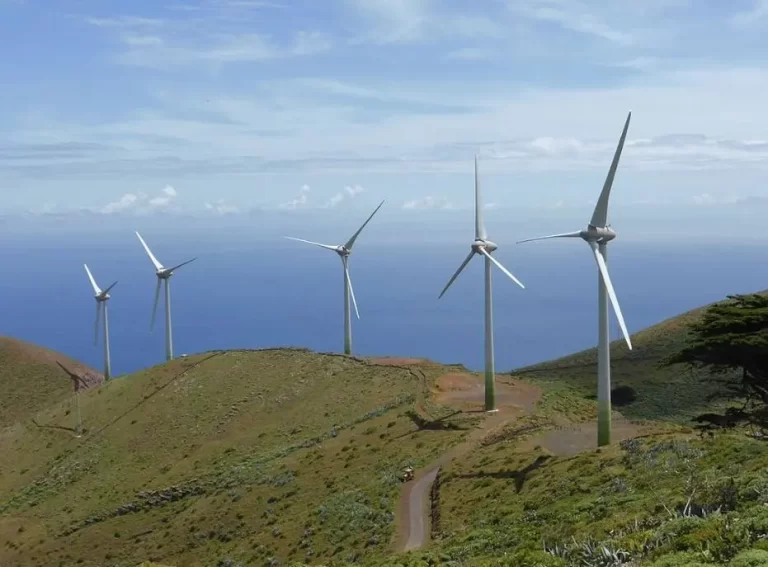
DOMINICAN REPUBLIC: ENVIRONMENT
- What is the environmental framework and the key pieces of environmental legislation in your jurisdiction?-The main legal instrument in the Dominican Republic is our Constitution, whose article 67 enshrines the protection of the environment. Law 64-00 of Environment and Natural Resources with the compendium of regulations for environmental authorizations is the main environmental legal framework of the country. There are several special laws for protected areas, solid waste, mining, renewable energy, biodiversity, and climate change, among others, that strengthen the regulatory framework in all sectors in which the environment has a direct impact.
- Who are the primary environmental regulatory authorities in your jurisdiction? To what extent do they enforce environmental requirements?-In 2000, the Law created the Ministry for the Environment and Natural Resources. The Ministry has the power to enforce the law at a national level. To carry out efficient management, it is supported by different under-ministries and regional directorates, and other related actors.The Ministry is responsible for developing, implementing, and monitoring the national policy on the environment and natural resources. Main economic sectors depend on their healthy coexistence with the environment, and we could say that the Ministry has been historically concerned with promoting economic growth without neglecting its main function of protecting the environment.
- What is the framework for the environmental permitting regime in your jurisdiction?-The compendium of regulations for environmental authorizations frames environmental authorizations into four categories: A (environmental license); B (environmental permit); C (environmental certificate); and D (minimum impact registration certificate) based on the characteristics of the project.
- Can environmental permits be transferred between entities in your jurisdiction? If so, what is the process for transferring?-Yes, you can transfer an environmental permit amending the beneficiary or holder of an environmental authorization.To obtain the transfer of the permit, documentation evidencing it must be submitted, and subsequently, an administrative fee should be paid. Based on the complexity time for approval it normally takes between 3 to 6 months for approval.
- What rights of appeal are there against regulators with regards to decisions to grant environmental permits?-Law 107-13 on the Rights of People in Their Relations with the Administration and Administrative Procedure and supplementary with sectoral and common law, gives the owner the possibility to appeal for reconsideration and hierarchy in administrative headquarters and contiguous-administrative appeal in court.Bear in mind that the approval of an environmental permit is not mandatory. If the Ministry considers that the submitted project does not comply with current regulations, it is entitled to reject it. This rejection must be properly motivated.
- Are environmental impact assessments (EIAs) for certain projects required in your jurisdiction? If so, what are the main elements of EIAs and to what extent can EIAs be challenged?-Yes, EIAs are required to apply for an environmental license. The Ministry will issue the Terms of Reference (TdR), which includes all the environmental characteristics that the applicant must present in the EIA.The Ministry has the power to challenge the EIAs when they consider that the information provided does not correspond to the law or the environmental conditions of the area. In any case, the objection must be supported by a report from the technical team.
- What is the framework for determining and allocating liability for contamination of soil and groundwater in your jurisdiction, and what are the applicable regulatory regimes?-Law 64-00 establishes that the government, society, and each inhabitant of the country are responsible for the protection of contamination of soil and groundwater. This responsibility has a special character for those who hold environmental authorization.
- Under what circumstances is there a positive obligation to investigate land for potential soil and groundwater contamination? Is there a positive obligation to provide any investigative reports to regulatory authorities?-No, it doesn’t.The Ministry of Environment has the power to investigate in case they consider there is water or soil contamination in a determined zone.
- If land is found to be contaminated, or pollutants are discovered to be migrating to neighbouring land, is there a duty to report this contamination to relevant authorities?-Any natural or legal person with an interest can file a complaint before the Ministry of the Environment which has the obligation to verify the allegations presented.
- Does the owner of land that is affected by historical contamination have a private right of action against a previous owner of the land when that previous owner caused the contamination?-Yes, he could file a claim before the General Attorney’s Office for Environmental Defence and Natural Resources. This claim must be in accordance with a report made by the technical team suggested by the Ministry of Environmental to provide the Attorney General of Environment with the tools to issue the corresponding sanction and the measures to recover the environmental damage.Additionally, the purchaser may opt for a civil lawsuit for restitution, damages, or both, depending on the case. In this case, the main legal framework will be the Dominican Civil Code.
- What are the key laws and controls governing the regulatory regime for waste in your jurisdiction?-Law 225-20 of Waste is regulated by the General Law of Comprehensive Management and Co-processing of Solid Waste. The Ministry and the Department for Integral Waste Management are responsible for enforcing the obligations of the Law, including the determination of the waste generators or producers, their level of responsibility, and if necessary, the applicable sanctions.
- Do producers of waste retain any liabilities in respect of the waste after having transferred it to another person for treatment or disposal off-site (e.g. if the other person goes bankrupt or does not properly handle or dispose of the waste)?-Waste generators or producers are responsible for the management of waste from its generation to its disposal and final disposition.
- To what extent do producers of certain products (e.g. packaging/electronic devices) have obligations regarding the take-back of waste?-Law 225-20 contemplates an extended responsibility regime that requires producers, importers, and marketers to manage waste, throughout its life cycle, including the post-industrial and post-consumer phases. Since this Law was enacted over two years ago, the jurisprudence on this issue is not yet binding.
- What are the duties of owners/occupiers of premises in relation to asbestos, or other deleterious materials, found on their land and in their buildings?-Our country adhered to several conventions such as the Rotterdam Convention on the Prior Informed Consent Procedure for Certain Hazardous Chemicals and Pesticides in International Trade of 2004, and we are also signatories of C162 Asbestos Convention of 1986 from the International Labour Organization (ILO), even though it has not been ratified.
- To what extent are product regulations (e.g. REACH, CLP, TSCA and equivalent regimes) applicable in your jurisdiction? Provide a short, high-level summary of the relevant provisions.-The Dominican Republic does not have this type of product regulation.
- What provisions are there in your jurisdiction concerning energy efficiency (e.g. energy efficiency auditing requirements) in your jurisdiction?-The National Energy Council is the institution in charge of developing policies to take advantage of its potential renewable energy accompanied. Law 57-07 establishes that the fact of not reaching the established levels of efficiency may lead to the revocation of the status of producer of electricity under the special regime, or to the suspension of the regime economic, regulated in this Regulation. For its validation, there are certifications such as ISO 50001.
- What are the key policies, principles, targets, and laws relating to the reduction of greenhouse gas emissions (e.g. emissions trading schemes) and the increase of the use of renewable energy (such as wind power) in your jurisdiction?-The Constitution of the Dominican Republic, Decree 269-15 on National Climate Change Policy, Law 64-00 on the Environment and Natural Resources, and Law 01-12 of National Development Strategy 2030 make up the legal framework on this matter.Law 57-07 promotes the consumption and production of renewable energy, which grants tax incentives to those who take advantage of this special regime.
- Does your jurisdiction have an overarching “net zero” or low-carbon target and, if so, what legal measures have been implemented in order to achieve this target.-Our National Climate Change Adaptation Plan is based on the Bali Action Plan, they concluded at COP 18 in Doha that as part of the agreed outcome, developing country Parties will take Nationally Appropriate Mitigation Actions (NAMAs).
- To what extent does your jurisdiction regulate the ability for products or companies to be referred to as “green”, “sustainable” or similar terms? 9.3 To what extent does your jurisdiction regulate the ability for products or companies to be referred to as “green”, “sustainable” or similar terms? Who are the regulators in relation to greenwashing allegations?-There are no express provisions that categorize products or companies as “green” or “sustainable”. However, Law 225-20 indicates that the production and use of materials like foam, and single-use materials are taxed unfriendly to the environment. This is a way of weakening the interest in their use because of the rise in the cost that it would imply.
- Are there any specific arrangements in relation to anti-trust matters and climate change issues?-No, there are no specific regulations against anti-trust matters and climate change issues. However, we trust that within the efforts made by the National Council for Climate Development, we will be able to talk about anti-trust provisions in the near future.
- Have there been any notable court judgments in relation to climate change litigation over the past three years?-No, in the last three years, we have had no relevant court judgments in relation to climate change.However, we could highlight two decisions of our Constitutional Court no. TC/0368/14 and TC/0651/16 that declares the Doha Amendment to the Kyoto Protocol of the United Nations Framework Convention on Climate Change of 2012 and the “Paris Agreement”, arising from the Twenty-First Meeting of the United Nations on Climate Change of 2015 in accordance with our Constitution.
- In light of the commitments of your jurisdiction that have been made (whether at international treaty meetings or more generally), do you expect there to be substantial legislative change or reform in the relation to climate change in the near future?-Yes, we expect climate change to be considered again as one axe on the next National Development Strategy. The country has strengthened its legal instruments, and this will allow us to be part of new international programs to mitigate climate change.
- Has the energy crisis/global events resulted in any impact on environmental regulations and/or change in approach to environmental and climate change policy?-The National Council for Climate Change, the Ministry of the Environment and Natural Resources, and the central government are executing the National Climate Change Adaptation Plan, so the priority is to obtain positive results before establishing new plans.
- To what extent can the following persons be held liable for breaches of environmental law and/or pollution caused by a company: (a) the company itself; (b) the shareholders of the company; (c) the directors of the company; (d) a parent company; (e) entities (e.g. banks) that have lent money to the company; and (f) any other entities?–
- A and D: companies are fully responsible for actions carried out against the environment whenever there is an express provision. Parent company responsibilities depend on their bylaws or agreement.
- B and C: in principle, shareholders and directors have a veil that separates their actions and personal finances from corporate ones.
- E and F: third parties are not responsible for the legal breaches of those to whom they provide services.However, in particular cases, the responsibility for these facts may reach the previously mentioned subjects.
- To what extent can: (a) a buyer assume any pre-acquisition environmental liabilities in an asset sale/share sale; and (b) a seller retain any environmental liabilities after an asset sale/share sale in your jurisdiction?-Environmental Law 64-00 does not establish this obligation. However, it is important to frame the responsibilities in the transaction agreement.
- What duties to disclose environmental information does a seller have in a transaction? Is environmental due diligence commonplace in your jurisdiction?-Environmental due diligence is not mandatory by Environmental Law 64-00. However, everyday environmental due diligence is more common in our jurisdiction.
- What environmental risks can be covered by insurance in your jurisdiction, and what types of environmental insurance policy are commonly available? Is environmental insurance regularly obtained in practice?-No, environmental insurance is not regularly obtained in practice.By Law you must count with: Civil liability towards third parties; at least 10 % of the value of the environmental management and adaptation plan, in favor of the Ministry of Environment and Natural Resources; and protection in case of contractual breaches, for large-scale projects.
- To what extent are there public registers of environmental information kept by public authorities in your jurisdiction? If so, what is the process by which parties can access this information?-In practice, it is more efficient to make an information request based on the Law General of Free Access to Public Information. The Ministry must grant a response within a maximum period of 15 business days.However, the Ministry of the Environment is supposed to publish a report every 2 years on the state of the environment and the country’s natural resources.
- To what extent is there a requirement on public bodies in your jurisdiction to disclose environmental information to parties that request it?-Law 200-04 General of Free Access to Public Information, every person has the right to request and receive complete, truthful, adequate, and timely information, from any public entity of the Dominican State, and from all companies, public limited companies, or public limited companies with state participation.
- What impact, if any, has COVID-19 had in relation to environmental regulations and enforcement in your jurisdiction?-We have not experienced modifications in environmental regulations because of the Covid-19 pandemic.
- Have there been any significant updates in environmental law in your jurisdiction in the past three years? Are there any material proposals for significant updates or reforms in the near future?-No, there have not been changes.Based on the statements of our Minister of Environment and Natural Resources, Dr. Miguel Ceara Hatton, we are positive that significant changes in environmental matters are coming during the next 2 years.
Source:
Legal 500



